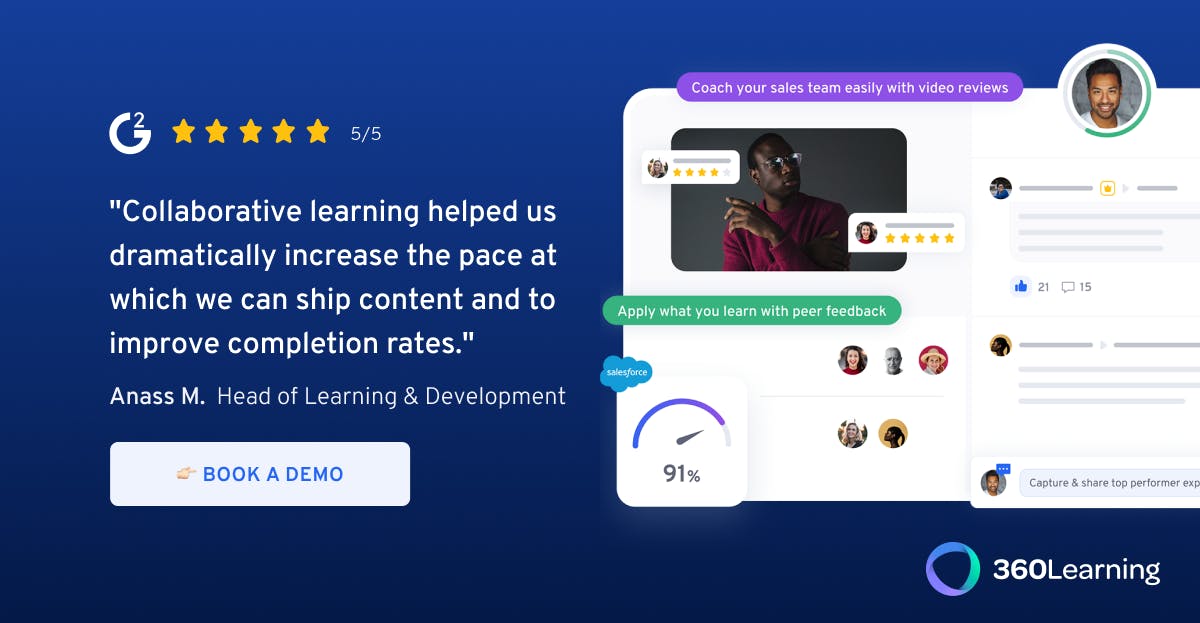The official story today is we’ve closed a massive $200million round of funding.
I can tell you that we’ve now got investors across 3 continents; we’re going to hire 300 people (join us here, but first check if our culture is a fit for you here) in the next year and invest heavily in our R&D, blah blah blah.
But you can read about all that on TechCrunch, Bloomberg, Business Insider, or Sifted.
This is not a fundraising announcement.
Let me tell you about my parents and why the corporate learning industry needs a reboot.
Both of them are South Americans. They moved to France in the 80s when the government was offering foreign underprivileged students very generous scholarships to study in France. They met at the university residence for South American students, fell in love, and had me. I was literally a product of their love for education.
I spent my first months in that university residence and soaked up their love of learning. My parents offered me the best education, and I couldn’t get enough of it. I studied computer science and business in one of the best universities with really smart people from all over the world; I loved university so much that I decided to do a 5-year philosophy distant-learning curriculum in parallel (which sparked my interest and passion for remote and online learning).
Education radically changed my parents’ lives, and as a consequence, mine.
I channeled my interest in learning into the founding of 360Learning. While the tech world is full of shiny new technologies, what we’re doing here is much more personal to me than a cool B2B SaaS tool.
I truly believe learning changes lives, and everyone should get that chance.
Although we’ve accomplished a lot so far, we’ve only achieved 2% of what we’re aiming for. The time is now to reboot the LMS industry
Why the LMS industry needs a reboot
Our generation is facing three major challenges:
Challenge 1: Brain drain
Baby boomers are retiring in large numbers, and when they do, all of their knowledge goes with them. Often, that’s 70% of the expertise of a company that will disappear in the next 3 years. Filling the workforce gap will be a challenge as there simply aren’t as many new workers entering the job market to replace exiting baby boomers.
Challenge 2: Keeping and attracting top talents
We’re in the Great Resignation, in which top candidates will leave a job they don’t like, and can take their pick of hot options. If they are happy where they are, it’s almost impossible to get them to leave.
Challenge 3: Technology race
Every couple of days, a new technology emerges that a company absolutely needs in order to remain competitive, but the skills to leverage it internally are missing. New skills are needed everywhere, and not just in the tech world. For instance, car manufacturers shifting to electric and green production while building self-driving cars will need new skills at every level: motor engine engineering, manufacture conception, software machine learning—all of this needs to be learned on the job, as needs evolve.
For all of these reasons, companies need to reboot their culture. Otherwise, they’re never going to attract the right people, and they won’t bring new skill sets into their business. It’s not just that they need a reskilling plan to catch up like you install an update on an app on your iPhone, it’s way deeper: they need to update the OS, the culture, the way people work, learn, and think inside the company.
Companies have been using ineffective learning techniques for years, based on a top-down culture that stifles talent. But these approaches, which were getting by in the past, aren’t going to fly with today’s more demanding workforce. Yet employers are still stuck in a bad relationship with:
- Ineffective skill maps
- Decades-long career paths
- Reskilling plans that dehumanize employees
- “Netflix of learning portals” that simply don’t work
I don’t believe any of this makes sense—I don’t think anybody does. These outdated practices were based on a real misunderstanding of how people learn and what makes them feel fulfilled—they wasted everybody’s time, and that’s got to stop.
Companies need to know they need to step up, or they’ll be out of the running; today’s talent won’t work for companies with a traditional, top-down, and siloed culture that treat them as fixed skilled ‘human resources.’ The best way to change your company culture? Reboot your learning culture with one that enables employees to learn collaboratively from each other and foster a growth mindset. Our mission is to empower everyone to end their bad relationship with eLearning.
What I believe to be the future
I believe today’s workforce is made of people who want to join an adventure.
They want to join a team of people that will be their team. They want to learn with and from that team. It’s the exact opposite of top-down culture and skill planning you find in outdated LMS platforms: it’s about people learning together with their peers.
For companies, it’s a reboot of their corporate culture—they need to break up with the top-down, siloed, and slow way of doing things, and open up to a growth mindset of continuous learning, founded on people’s motivation to work with peers that they respect.
Breakups aren’t easy. But you deserve better.
What does that look like in practice?
Rewarding experts for the courses they create, interacting with peers within these courses and empowering collaboration across all touchpoints of the learning experience.
You can check it out yourself with a free demo below, or go here to learn more about the Collaborative Learning movement.



